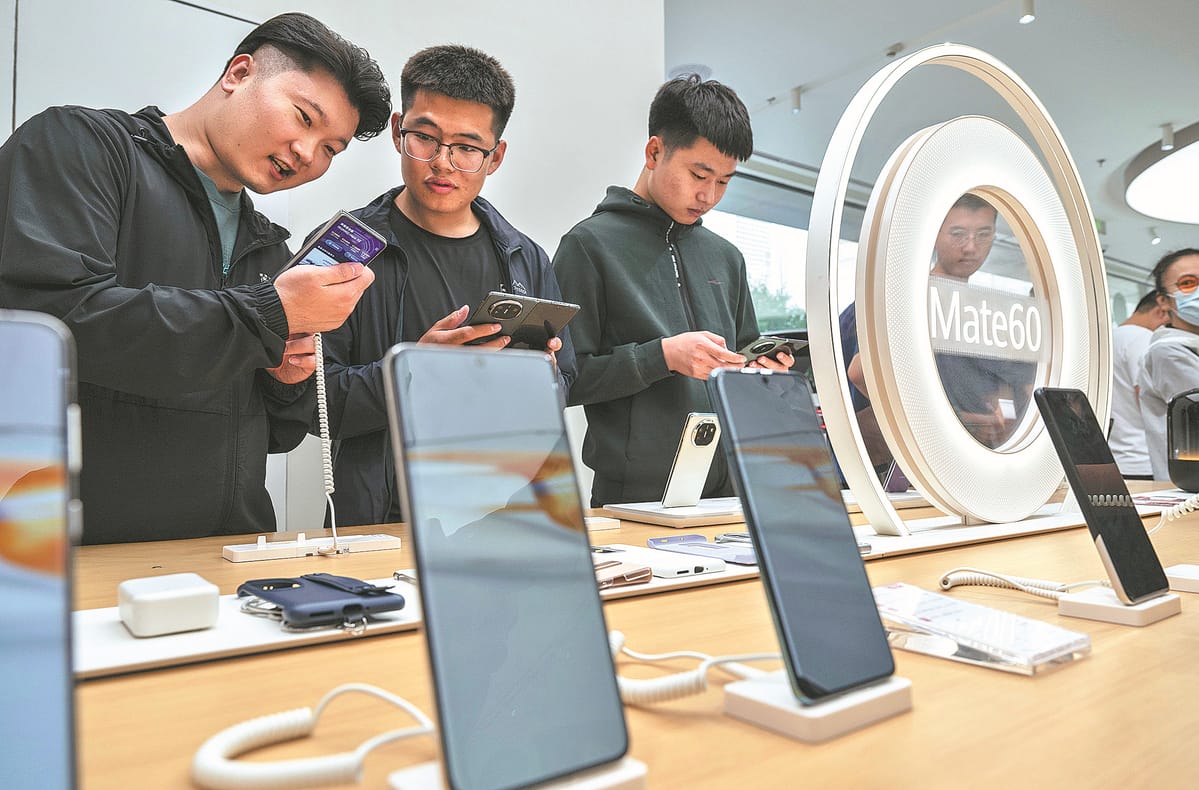Intensified efforts by the United States to stifle China’s technological advancement through stringent export controls may, in fact, prove counterproductive. The recent surge in Huawei’s chip innovation serves as a stark reminder that these measures could disrupt global supply chains, undermine the interests of US companies, and inadvertently accelerate the development of Chinese firms, according to experts.
Disrupting Global Supply Chains
The US Commerce Secretary, Gina Raimondo, expressed her concern about Huawei Technologies Co’s recent chip breakthrough, labeling it as “incredibly disturbing” during a US Senate committee hearing. She emphasized the need for the US Commerce Department to strengthen its export control measures. However, experts believe that such actions could lead to unintended consequences.
Xiang Ligang, director-general of the Information Consumption Alliance, a prominent telecommunications industry association in China, argues that Huawei’s technological strides highlight the ineffectiveness of US restrictions on China’s tech development. He suggests that these measures may ultimately backfire, as Huawei’s breakthrough has injected fresh vitality into China’s domestic chip industry.
“It will motivate Chinese companies to double down on indigenous innovation and pool more resources into research and development,” Xiang stated.
Consumer Frenzy over Huawei’s Breakthrough
During the eight-day Mid-Autumn Festival and National Day holiday, Huawei’s Mate 60 series smartphones witnessed remarkable success, both online and offline. Consumers queued up at Huawei’s stores to get their hands on these sought-after products, illustrating the appeal of Huawei’s technology advancements in the market.
Zhang Quanyi, a retailer with over ten smartphone stores in Suqian, Jiangsu province, shared his observations: “Huawei’s Mate 60 series smartphones have become the most sought-after product at my stores. Almost every consumer who comes to my stores asks first about the series. The phones are so popular we had to display out-of-stock boards at my stores.”
Promoting Re-Globalization in the Semiconductor Industry
Despite the US shifting its rhetoric from “decoupling” to “de-risking” in key supply chains, experts argue that the US government remains concerned about China’s technological prowess and aims to curb the rise of Chinese tech companies. These measures, however, run counter to the interests of US companies.
Wei Shaojun, president of the integrated circuit design branch of the China Semiconductor Industry Association, contends that the US’s stringent chip restrictions are severely disrupting the global semiconductor industry’s development cycle and fragmenting its industrial chains.
Data from the International Monetary Fund (IMF) underscores the potential costs of technological decoupling, estimating a 5 percent loss in GDP for Asian economies. “That’s quite a big number… In general, technological decoupling is very expensive for not just Asia but also for the rest of the world,” said Krishna Srinivasan, director of the IMF’s Asia and Pacific department.
Li Xianjun, an associate researcher at the Institute of Industrial Economics, part of the Chinese Academy of Social Sciences, suggests that China should proactively promote the re-globalization of the semiconductor industry. Given China’s role as the world’s largest chip market and its expanding presence in semiconductor manufacturing, he believes that investing in long-term research and development is essential to achieving self-reliance in key chip technologies and offsetting the effects of US containment measures.
In conclusion, the intensification of US export controls on chips is generating unintended consequences as China’s technological advancements, exemplified by Huawei’s breakthrough, challenge the efficacy of these restrictions. As the global technology landscape evolves, the dynamics between the US and China will continue to shape the future of the semiconductor industry.
















